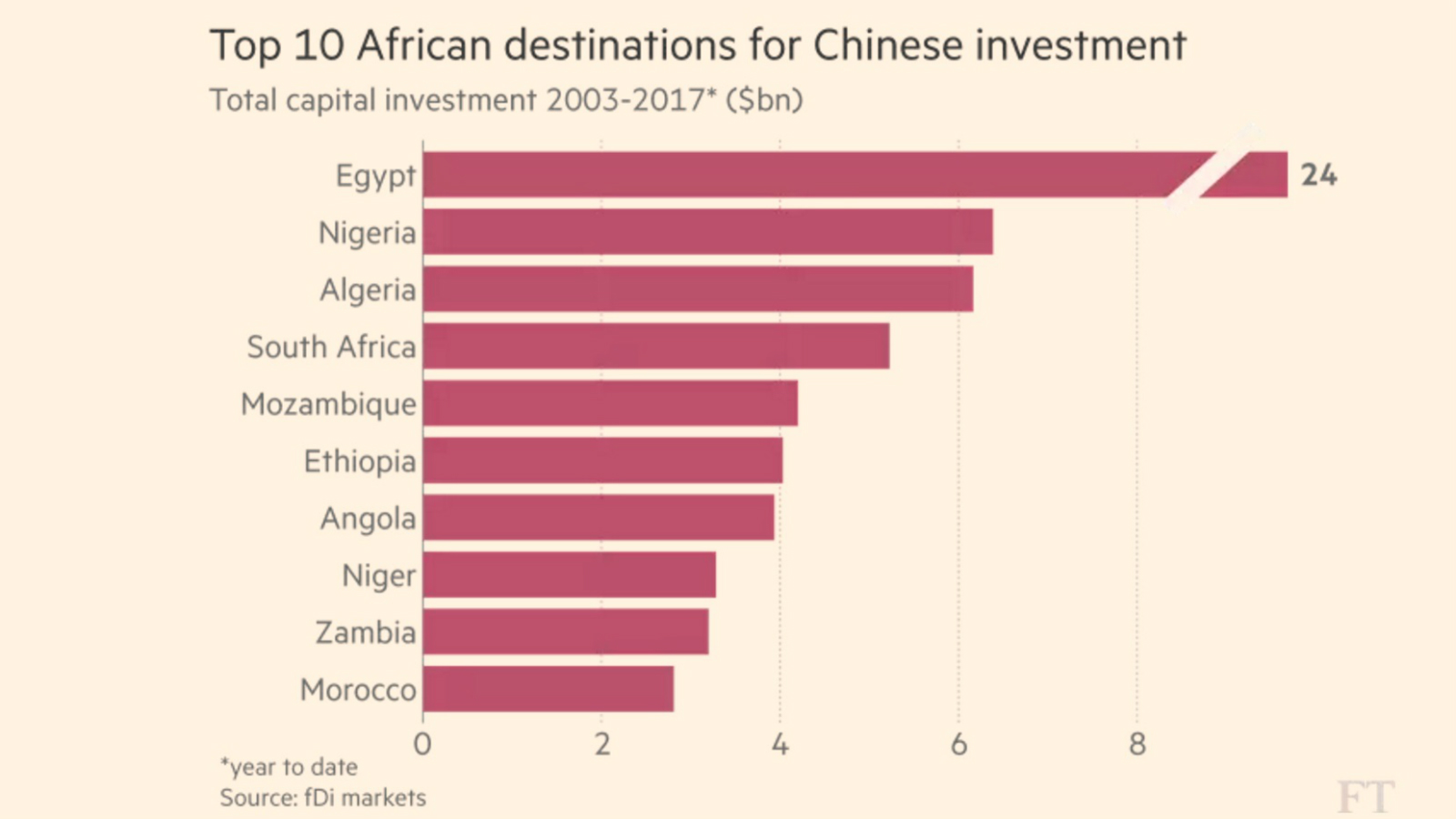China’s investments in Africa are a testing grounds for its emergence as superpower

China’s investment spree has turned Africa into a testing ground for its emergence as superpower, with the Chinese government taking the view that these investments would channel into geopolitical capital, writes David Pilling for the Financial Times. While this is nothing new, Pilling’s piece gets down to the nitty gritty of the investments and providing interesting numbers and graphs on their level of growth. One figure that caught our eye was that 1 mn Chinese entrepreneurs have made their way to the continent, and contributing to the 20-fold increase in investments to USD 220 bn from 2000-2014. Egypt has been the biggest beneficiary of this explosion of Chinese investments, with USD 24 bn in Chinese direct foreign investment coming in from 2003-2017, far outpacing second place holder Nigeria, which stands at USD 6-7 bn.
“Africa has been a workshop of ideas that now have a much bigger scale and strategic significance,” says Howard French author of the book China’s Second Continent. Two styles of economic cooperation and trade appear to be at play. The first is an aggressive move in resource extraction, as Chinese companies have made an effort to corner the market for cobalt, with multi-bn USD purchases of stakes in mines in Congo in recent month. The other takes a more subtle, state-led approach, such as development programs in resource-poor countries such as Ethiopia, and of course the Belt and Road Initiative. African nations on the whole appear to see China’s involvement as a net positive, but the piece ends on a warning for African countries, calling on them to take control of their relationships and negotiate with China on its own terms.